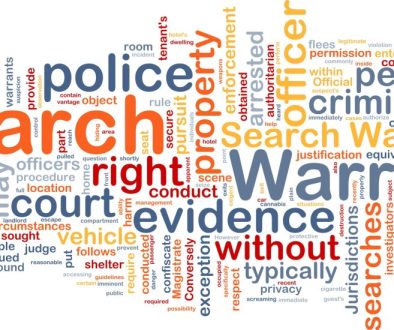Deadly Weapon Enhancements In Pennsylvania & New Jersey

Our law firm often defends accused persons in Pennsylvania and New Jersey against illegal firearm charges. Crimes involving deadly weapons usually carry a state prison sentence. These crimes usually involve the violation of Pennsylvania’s Uniform Firearms Act (aka VUFA—Title 18 Section 6101) but they are not limited to firearms. Even if one has no prior criminal history, he is facing a possible state prison sentence In addition to these guidelines the assigned assistant district attorney (ADA) or prosecutor may ask that the court impose deadly weapon enhancement, which can add 12-24 months to the minimum and maximum guidelines for these crimes. While mandatory minimum sentence is no longer applied in Pennsylvania the deadly weapons enhancement does apply to any situation involving these weapons. The most common illegal firearm matters that our law firm handles in Pennsylvania are
Title 18 Section 6105—Person Not Possess Firearms
Title 18 Section 6106—Firearms Not To Be Carried Without a License
Title 18, Section 6018—Carrying Firearms on Public Streets in Philadelphia
Title 18, Section 6110.2—Possession of Firearms With altered Manufacturer’s Number
Pennsylvania utilizes a Deadly Weapon Enhancement Matrix to assist criminal trial judges in determining a sentences. There are actually two different matrixes—Possessed (Section 303.17(a) Pennsylvania Sentencing Commission and Used (Section 303.17(a) Pennsylvania Sentencing Commission.
In New Jersey, under its Graves Act, 2C:39-1, there is not only a mandatory minimum 42 month state prison sentence for many illegal gun and firearm offenses, the Court may also sentence a convicted person to an extended term of prison under 2C:44-3. Read my article on New Jersey Gun Crimes for more information. The most common illegal gun and firearm crimes that our firm handles in New Jersey are the following
2C:39-4—Possession of weapons for unlawful purposes
2C:39-4.1—Possession of weapons, Controlled Dangerous Substance (CDS)
2C:39-5—Unlawful Possession of weapons
The Burden of Proof For The Deadly Weapon Enhancement
Unlike a trial the DA is not required to prove that a deadly weapon was used beyond a reasonable doubt but rather by a “preponderance of the evidence”. In addition, the ADA may meet this burden through circumstantial evidence as opposed to direct evidence. As you recall, circumstantial evidence doesn’t require an eye witness but simply that the ADA be able to piece enough facts together to meet the burden of proof. In addition, the ADA isn’t required to prove that the defendant used the weapon for the entire duration of the crime only that he/she possessed it at the beginning of the crime.
With regards to possession, the prosecution can prove it either through actual or constructive possession. Actual possession is when the weapon is found on the defendant’s person and constructive possession means that it is only in his/her “immediate control.” The law doesn’t limit the definition of a deadly weapon to firearms. In addition to guns, courts have found items such as a tire iron or other blunt objects (bat, knife, etc) to satisfy this requirement. A deadly weapon can be pretty much anything!
Standard vs. Enhanced Sentencing Guidelines
With regards to the standard guidelines and the enhanced guidelines it is important to remember that courts are only required to consider the guidelines. Courts are permitted to deviate from them and are only then required to provide reasoning for the deviation. It is very important that your attorney have a firm understanding of sentencing guidelines as well as the enhancements. There are many situations where your attorney will have to negotiate a plea for you because it makes more sense than proceeding to trial. In this situation an attorney who doesn’t have a firm command of the guidelines and the enhancements severely hinders your ability to obtain a good result from a plea.
It is almost better to proceed to trial rather than pleading your case if your attorney does not understand sentencing guidelines. If you are going to plead guilty you should go into it with an understanding that the plea will provide you with a substantially better sentence then one received following conviction at trial. If your attorney can’t guarantee you a much better result following a plea you may want to consider your trial options.



